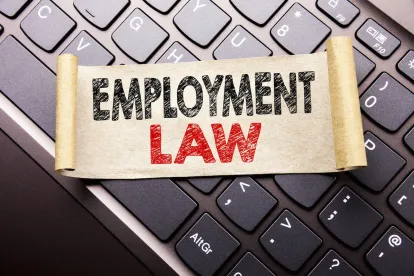- The National Labor Relations Board (NLRB) General Counsel directed NLRB regions to seek preemptive injunctions for alleged unlawful threats during union campaigns. NLRB General Counsel Jennifer Abruzzo issued a memorandum directing the NLRB’s regional offices to seek injunctions against employers who have allegedly threatened employees during union organizing drives. NLRB GC Memo 22-02 (issued Feb. 1, 2022). Section 10(j) of the National Labor Relations Act (NLRA) gives the Board the power to seek injunctive relief from federal courts in order to prevent irreparable harm to aggrieved parties. GC Memo 22-02 lays out the policies and procedures for the Board’s regional offices to determine whether to seek injunctive relief during organizing campaigns where a threat or act of coercion has yet to be carried out. It directs the regional offices to consider “all contextual circumstances” in analyzing the appropriateness of seeking a 10(j) order, including the inherent impact on employees and union support, hierarchal rank of the actor(s), local labor market, and whether the employer is a repeat offender.
- A White House labor task force recommended greater property access for unions and transparency on employer’s spending during organizing drives. The Task Force on Worker Organizing and Empowerment — a group assembled by President Joe Biden to promote unions and organizing — has released a report recommending expanding access for organizers on federal property and strengthening the requirement that employers file disclosure reports on their expenditures for “anti-union consultants,” also known as “persuaders.” (Report released Feb. 7, 2022.) The Task Force (led by Vice President Kamala Harris and Secretary of Labor Marty Walsh) was created by an executive order from President Biden, a nod to his vow to be the most pro-union president in history. The report recommended that the Department of Labor revise its rule on persuader disclosures to ensure maximum compliance and require employers using persuaders to disclose if they are federal contractors and whether the persuader activity relates to employees working under the federal contract. President Bill Clinton issued a strengthened persuader rule in the last days of his presidency, which was rescinded by the George W. Bush Administration. Then, President Barack Obama issued a similar rule in 2016. These rules were highly criticized by business and attorney groups, the latter pointing out that it would interfere with attorney-client privileged information. President Donald Trump’s administration rescinded the Obama rule in 2018.
- The NLRB General Counsel stated that lawmakers should nullify Epic Systems, a move that would end mandatory arbitration. At a virtual Georgetown University panel, General Counsel Jennifer Abruzzo implored Congress to ban compulsory workplace arbitration agreements, effectively nullifying the Supreme Court’s decision in Epic Systems Corp. v. Lewis, 138 S. Ct. 1612 (2018), which found the Federal Arbitration Act makes individual arbitration agreements enforceable. The General Counsel’s plea comes in the wake of Congress passing the Ending Forced Arbitration of Sexual Assault and Sexual Harassment Act, which makes pre-employment arbitration agreements unenforceable in cases of sexual assault and sexual harassment. Abruzzo, however, says the soon-to-be law does not go far enough, not only because it still permits forced arbitration for other forms of harassment, but because arbitration agreements prevent the type of collective action contemplated in the NLRA. The Protecting the Right to Organize Act (PRO Act) — which passed in the House of Representatives but has stalled in the Senate — would make it an unfair labor practice for an employer to enter into an arbitration agreement that prevented employees from bringing class or collective employment claims.
- The Trump-era Board test for independent contractor status resulted in more cases decided in employees’ favor than the Obama-era test. According to statistics released by Bloomberg Law, the test used to determine whether a worker is an employee or independent contractor established by the Trump Board has a higher rate of rulings in favor of employee status than did the Democrat-majority Obama Board, widely described as more employee friendly. The Trump Board’s rule, established in SuperShuttle DFW, 367 NLRB No. 75 (2019), added a greater emphasis on “entrepreneurial opportunity” to the traditional 10-factor analysis in FedEx Home Delivery, 361 NLRB 610 (2014), the test to which NLRB General Counsel Jennifer Abruzzo has urged the Board to return. Unlike independent contractors, employees traditionally have greater protections in the workplace, including unemployment benefits, workers compensation, and collective bargaining rights. Although the percentage of cases decided in employees’ favor under the Trump Board’s rule was higher than the Obama Board rule, the Obama Board rule had heard more total cases on the issue and decided more total cases for employees, possibly due to hesitancy in bringing these types of cases during the Trump Administration.
- The Board approved the General Counsel’s decision to ratify actions taken by Acting General Counsel Peter Sung Ohr. The Board has approved General Counsel Jennifer Abruzzo’s decision to ratify the actions of Acting General Counsel Peter Sung Ohr, her immediate predecessor appointed by President Joe Biden after the firing of Trump-appointee Peter Robb. The Board rejected the employer’s argument that Ohr’s actions were illegitimate because Robb was unlawfully fired, finding it moot because Abruzzo’s ratification effectively endorsed Ohr’s actions. Wilkes-Barre General Hospital, 371 NLRB No. 55 (decision issued Feb. 1, 2022). The Board also found that Robb’s ouster was legal, citing Collins v. Yellen, 141 S. Ct. 1761 (2021), a recent U.S. Supreme Court case that dealt with the removal of government officials. The Board’s Republican minority did not find it necessary to address Abruzzo’s ratification, stating that President Biden’s firing of Robb was lawful as determined by Collins v. Yellen.
Thomas V. Walsh and Megann K. McManus contributed to this article.








 />i
/>i
